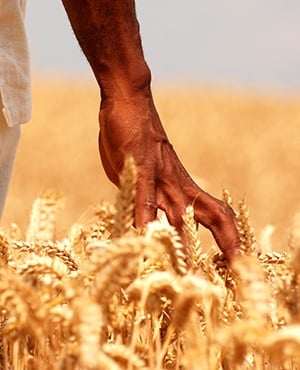
State should tap talent to facilitate land reform, writes Ronnie Phala
It is common practice nowadays to garnish political speak with a liberal dose of the fourth industrial revolution (FIR), which suggests that digital technologies are top of mind within government.
It is, however, important when embarking on major change initiatives to seriously consider FIR implications beyond just a footnote.
In South Africa, one such major initiative is the highly complex land reform process.
While the parliamentary review process takes care of the politico-legal complexities of land reform, the advisory panel on land reform will need to consider, inter alia, the avenues made possible by technologies of the FIR.
Land reform considerations that would benefit from digital input include how to manage and monitor the process, how to verify beneficiaries, and how to identify unused properties and trace the owners.
An appreciation of the digital landscape will provide the panel with a clearer sense of what policy options are realistic and the indicative time frames.
President Cyril Ramaphosa has repeatedly pointed out that there are many companies that are offering tracts of land in the interest of land reform.
And many farmers have expressed a willingness to give away parts of their farms, but do not know how to go about it.
The obvious question is why these gestures are not translating into tangible land reform outcomes.
One of the start-ups incubated at Terra Ignota seeks to address this by developing a pre-expropriation marketplace to kick-start the land reform process.
It brings together contributing property owners and their intended beneficiaries.
The owners include those that have undertaken to make land available for land reform, as well as unused state-owned land.
This digital platform will allow owners to list the available properties and state the intended use, nature of partnerships sought and the profiles of preferred partners.
Communities, non-governmental organisations, municipalities and individuals will be able to respond with proposals and offers, while financial institutions provide financing where required.
An open digital platform will bring clarity to the process, reduce complexity, facilitate knowledge sharing, and help reduce corruption and nepotism.
There is also the massive challenge of identifying unused property, locating the owners, and finding creative and inclusive ways to use the property.
To this end, the digital platform allows a member of the public to pin the location of a property using WhatsApp and to send the pin to a dedicated number.
In return they will receive information on the ownership history of the property, whereafter they may express interest if said property is available.
Owners of properties already listed on the platform will receive notifications whenever their properties are pinned and will decide whether to engage.
Empowered with such a facility, communities will be spared from bogus agents and other charlatans who sell land not belonging to them, since the details of the property and of the actual owner will be one text message away – and free.
In addition to encouraging public participation, the pinning of properties by the public is also a form of crowd sourcing, which will enhance government’s land audit process with the potential to unearth properties that are not accounted for in any other source.
When government is ready to proceed with the land reform process, the key frameworks and digital tools should already be in place, lest we suffer further delays and the associated societal consequences.
The advisory panel would do well to tap into the vast pool of highly creative FIR talent, most of whom can be found conjuring world-changing solutions in co-working spaces, incubators and hackathons.
Phala is co-founder at Terra Ignota, an incubator of tech start-ups based in Cape Town




 Publications
Publications
 Partners
Partners








